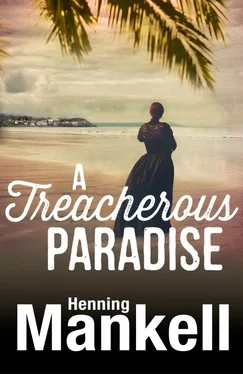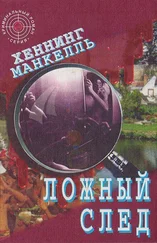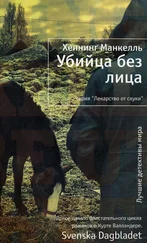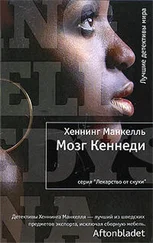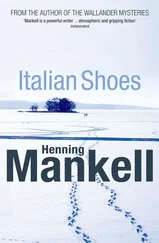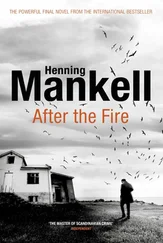Pimenta travelled to Johannesburg and placed an advert in the biggest national newspaper announcing that sensational white sheepdogs, trained as guard dogs, were for sale, albeit only in limited numbers at present.
He had rented a suite in one of Johannesburg’s leading hotels. Before long the desperate hotel manager was forced to employ extra staff to cope with the long queue of prospective buyers.
Pimenta had taken two of the puppies with him to Johannesburg, a dog and a bitch. They were two of the most intelligent of the dogs he had bred. To demonstrate their aggressiveness he called a black bellboy to his room: the dogs immediately began straining at their leashes, snarling and growling frantically.
He sold the dogs for amounts that made it clear he had the equivalent of top-grade diamonds in his kennels. When he went back home he had with him orders and down payments for over fifty dogs, and had increased his fortune just like a successful gold prospector — without ever having so much as touched a spade or a wash pan.
Pedro Pimenta had become an entrepreneur in fear. He knew how he was going to exploit his knowledge. As far as he was concerned, the fear some people had of others was purely and simply a brilliant business opportunity.
The day after the meeting at the brothel, Hanna paid to borrow Andrade’s car and chauffeur in order to visit Pedro Pimenta’s estate outside Lourenço Marques.
Pimenta had built an enormous house next to his dog kennels. He had created a large garden around it, and dug out several ponds in which he fattened up crocodiles before sending their skins to tanneries in Paris where they were made into shoes and handbags. The crocodile eggs were collected from sandbanks further up the River Komati. He had also employed oarsmen to capture newly born crocodiles from the water next to the sandbanks where the mothers were lying on guard. They didn’t hesitate to attack if anybody tried to steal their eggs or the youngsters they had carefully carried down to the river in their mouths. On one occasion a large crocodile had succeeded in overturning one of the flimsy rowing boats. Both men had fallen into the water and desperately attempted to swim to the riverbank. One of them had succeeded, but had had been forced to watch as his friend struggled as far as the bank and dug his fingers into the wet sand in order to haul himself up: but as he tried to do so a crocodile seized him by the leg and dragged him down into the water again. His head had appeared once more before the crocodile pulled him back down under the surface for good, and lodged the body in among the tangled roots of the trees near the bank. The body would rot away there until it was ready for eating.
Hanna had heard that story from Felicia, and had no doubt that it was true. She couldn’t just dismiss it as yet another of the thousands of yarns told by the men sitting in the brothel, chatting to their whores.
Pedro Pimenta was religious. Felicia had shown her the memorial stone he had erected in the municipal cemetery in memory of the man who had been eaten by the crocodiles. There had been no body to bury. The dead man’s clothes had been placed in a beautifully carved wooden coffin. The only word on the memorial stone was the name Walibamgu: Pimenta didn’t know the man’s surname. He had simply turned up one day at the crocodile pools, looking for work, and Pimenta had recruited him without further ado. As far as Pimenta was concerned it didn’t matter that the man had no surname and no past. He was just one of the vagrants from the interior of Africa who only existed for one moment, a Walibamgu with no date of birth — but a date of death.
Pimenta believed in God and attended the cathedral regularly. He donated money for the purchase of new candlesticks, and had also paid for the repair of some pews that had been damaged by termites.
Now he was sitting in the shade on his large veranda with views of the river and beyond that the mountains that seemed to melt away into a permanent mist. Hanna knew that Pimenta very rarely left his home. The only excursions he made were to the brothel and to the cathedral. He turned down all the invitations he received. Not even the Portuguese governor was able to tempt him to attend any of the dinners the rest of the white colonial elite fought among themselves in order to be present at. Pimenta preferred to sit on his veranda, keeping watch on his crocodiles as they grew bigger and fatter in their ponds, and on the white sheepdogs whose aggression was being built up in the extensive kennels. In a pond next to his veranda he kept a few baby crocodiles and fed them himself with small fish and frogs.
Pimenta was wearing a white linen suit and a pith helmet with a protective cloth covering the back of his neck. The shape of his body was peculiar: the whole of his body was thin apart from his stomach, which stuck out like a tumour over his belt. His skin was covered in scars caused by insect bites and pimples, one of his eyelids was sagging as if half of his being was devoted to struggling with overpowering exhaustion. Although he was still young, he had aged prematurely — as was often the case with white people who migrated to the tropics and spent their time there working far too hard.
For several years Pedro Pimenta had been living with a black woman called Isabel, and had two children with her: a son and a daughter. Both of them had been baptized in the cathedral and were called Joanna and Rogerio.
Hardly any of the whites in Lourenço Marques worried about the fact that he had a black lover; but the fact that he lived openly with her, as if they were married, and that he looked after her children as if they were his own — which of course they were — with the help of a private tutor, was condemned by everybody. In some circles he was regarded with contempt, while others looked upon him with a sort of vague worry.
Pimenta shook Hanna’s hand when she emerged from the car, and invited her to accompany him to the veranda where there was at least a suggestion of cool breezes from the river valley blowing along the house walls. Isabel came out to greet her. She was dressed just like a white woman and her black hair was gathered in a tight bun at the back of her head. It struck Hanna that this was the first black woman she’d met who had looked her in the eye when they shook hands. The expression in Isabel’s eyes gave Hanna the feeling that this was what native Africans had looked like before the whites had arrived in their ships in search of slaves, diamonds and ivory.
Isabel fetched the children so that they could greet her as well. Hanna thought she was looking at two unusually handsome children.
‘My children,’ said Pimenta. ‘My greatest joy. Often my only joy, come to that.’
Hanna wondered why he suddenly sounded so downcast. A cold breeze that didn’t come from the river but from inside herself wafted past. She didn’t understand how he could talk about joy in a way that actually indicated depression.
Something worried her, although she couldn’t put her finger on it.
He took her to the dog kennels.
‘Demand is growing all the time,’ he said. ‘I thought I would have a monopoly of these white dogs for four years at most, then other breeders would start producing similar dogs to satisfy the market demands: but I now realize that I had underestimated the human need of originals. And these here are the originals, they exist nowhere else.’
‘How much do the dogs cost?’ Hanna asked.
‘Anybody who asks about the price can hardly be able to afford one of them.’
‘I’m not asking because I want one for myself.’
‘I know. You would be able to afford one.’
Hanna gathered that he didn’t want to reveal his asking price. Or perhaps he didn’t have a set price, but asked individual customers to pay what he thought they would be able to afford.
Читать дальше
